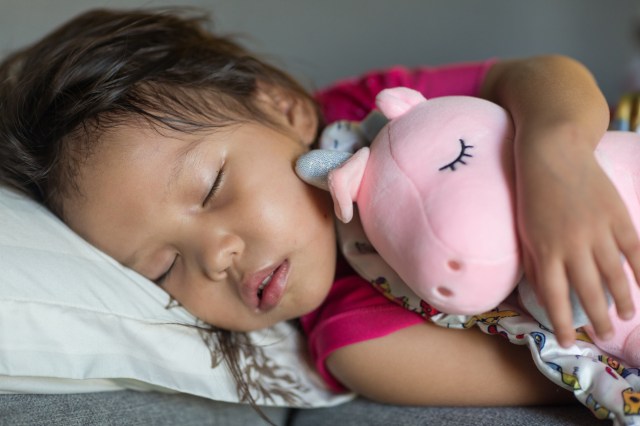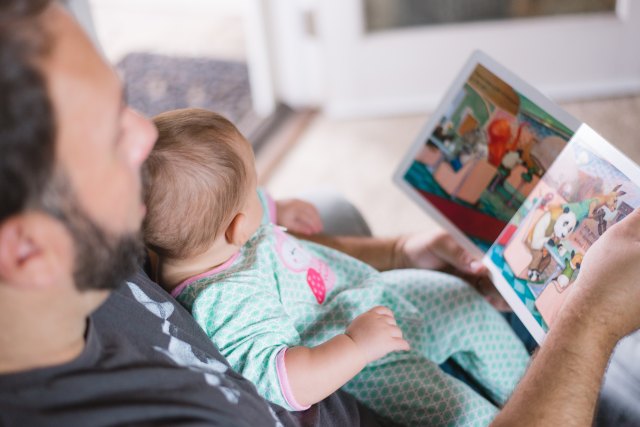Make the best of gaining that extra hour
Pre-kid, you never really thought about Daylight Saving Time (what’s an hour here or there?). But kids can make this seasonal change a challenge. With the end of Daylight Saving coming up soon, falling back can mean it’s super dark, super early.
Before you set your clocks back an hour, read on for some tips and tricks for keeping that precious, tenuous sleep/wake routine in place as we lose an hour of daylight.
Related: How Would You Feel About the End of Daylight Saving?

Bit by bit. You can try moving up bedtime in increments of 15 minutes for a few days leading up to the time change. This will help set your kids’ little clocks before the big day so it won’t be a total big shock. Consider arming them with a cute (and practical) alarm clock to help make the transition a bit easier.
Be consistent. If sleep time starts earlier, that means waking up time will, too. If you're rolling time back a few days before, do the same with wake-up time, breakfast, lunch, dinner, etc. Their entire day from top to bottom should still feel the same, even if you're adjusting and fudging with timing. They shouldn’t even notice a change, especially if they’re too young to tell time.
Related: 10 Secrets to Getting Your Kids to Nap Longer

Eat earlier. Although it's tricky with work day schedules (because we don't get off an hour earlier, do we?) this time of year may be hard to eat dinner earlier, even if it "feels" later. But if you can push dinner a bit earlier each night, it will help your kids’ internal clocks. Try giving the kids protein-packed lunches to sustain them until dinner.
Ignore it. Not the best strategy, but if you keep chugging along so will they. Just switch everything on the day of, and move on. Kids are resilient. Just try to keep their routine (mostly) intact.
Related: 14 Games to Play Before Bed That Guarantee a Trip to Dreamland

Spend as much time in natural light as possible. Getting on the same rhythm as the day helps with energy and mood, especially during the winter months. And, that extra hour you gain when we "fall back?" Make it a no-screen time zone in order to help kids get quality sleep.
Be realistic. Your child may not even notice a slight change or they may go bonkers. But it's important to remember to listen to them, understand why they're upset and work from there. Children are each so different—who knows how they'll each react or even how one will react from year to year!
Be sympathetic. Remember to put yourself in your kids' shoes and stay calm if she's a hot mess for a few days. By staying calm, you'll help kids adjust in no time.

